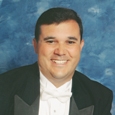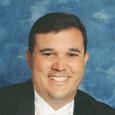During the spring semester, instrumental ensembles around the country will prepare for various concert performances. The amount of preparation and effort that goes into these events requires a great commitment from the directors and each student. In addition to a final concert at home, many instrumental programs will attend a festival or competition where a panel of adjudicators will assess a prepared performance. These assessments are typically accompanied by a series of ratings, rankings, and comments.These supplemental performances allow students to observe other performances, perform in different venues, and learn from outside adjudicators. These experiences can enhance a program’s potential for musical growth and group camaraderie.
Recently, I interviewed several of the country’s top music educators with extensive experience adjudicating everything from local festivals to international events. Their insights and experiences shed light on how to produce the best possible experience for your ensemble.
What are the benefits for students of participating in an adjudicated event?
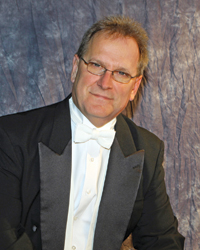 Frank Tracz, Kansas State University: Some of the benefits of an adjudicated event are immediate feedback and comparison. Students need to know what others think of them. Having another set of ears and eyes that are not prejudiced by hearing the ensemble daily is a wonderful way to find out more about your ensemble.
Frank Tracz, Kansas State University: Some of the benefits of an adjudicated event are immediate feedback and comparison. Students need to know what others think of them. Having another set of ears and eyes that are not prejudiced by hearing the ensemble daily is a wonderful way to find out more about your ensemble.
Robert Grechesky, Butler University: Obviously the comments students get from the adjudicators are an important part of the growth of the ensemble; if the event includes a clinic session with one of the adjudicators, that is also extremely valuable for the ensemble. One aspect of contests and festivals that is often neglected is having groups stay as audience members and listen to each other. With guided listening and commentary by the conductor, I think this can be a valuable experience for band members.
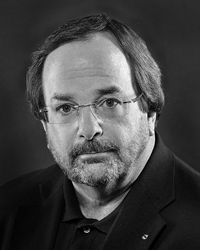 Larry Blocher, Troy University: Education implies growth, and educational growth requires ongoing challenge. Adjudicated events help music students to allow their work to be evaluated publicly; learn to analyze and evaluate the comments of professionals as a basis for self evaluation and reflection; hear, evaluate, and support the performances of other students; and, develop the discipline to do their best.
Larry Blocher, Troy University: Education implies growth, and educational growth requires ongoing challenge. Adjudicated events help music students to allow their work to be evaluated publicly; learn to analyze and evaluate the comments of professionals as a basis for self evaluation and reflection; hear, evaluate, and support the performances of other students; and, develop the discipline to do their best.
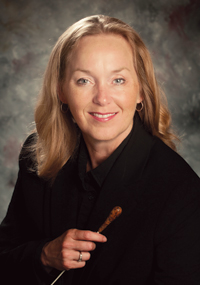 Catherine Rand, University of Southern Mississippi: One of the most important benefits to participating in an adjudicated event is the opportunity to listen to other performances throughout the day. This allows students to hear concerts by ensembles that they may not have heard in their county or state. With some guidance from their director, students learn how to listen critically and evaluate others players and themselves.
Catherine Rand, University of Southern Mississippi: One of the most important benefits to participating in an adjudicated event is the opportunity to listen to other performances throughout the day. This allows students to hear concerts by ensembles that they may not have heard in their county or state. With some guidance from their director, students learn how to listen critically and evaluate others players and themselves.
Daniel McCloud, Angelo State University: In my experience, students give more effort to developing their musicianship when they will play for adjudicators. There is also the opportunity to receive feedback from someone other than the band director, thus offering a perspective that the students may not have heard before.
In your experience do ensembles play better for a competitive event than a festival for comments only?
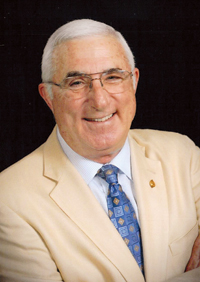 William Malambri, Director of Bands Emeritus, Winthrop University: The levels of quality are inextricably linked to the attitude and philosophy of the ensemble director. Luciano Pavarotti, one of the most respected artists of our time wrote, “The rivalry (competition) is with our self. I try to be better than is possible. I fight against myself, not against the other.” If ensemble directors embrace Pavarotti’s tenet, there is no difference in their preparation for and performance level in a festival, a competition, or a campus concert. Ensembles that espouse this philosophy will most certainly demonstrate a high level of musical expertise regardless of nomenclature.
William Malambri, Director of Bands Emeritus, Winthrop University: The levels of quality are inextricably linked to the attitude and philosophy of the ensemble director. Luciano Pavarotti, one of the most respected artists of our time wrote, “The rivalry (competition) is with our self. I try to be better than is possible. I fight against myself, not against the other.” If ensemble directors embrace Pavarotti’s tenet, there is no difference in their preparation for and performance level in a festival, a competition, or a campus concert. Ensembles that espouse this philosophy will most certainly demonstrate a high level of musical expertise regardless of nomenclature.
Christian Zembower, East Tennessee State University: The quality of the performance, no matter whether it is a festival for ratings or a competition for trophies should be the best each performer and ensemble can give. However, I have noticed that students will tend to not take the festival for comments only quite as seriously as a competition. As for the comparison of a performance for comments only versus a rating system, students usually do not perform as well with comments only. Most of these students feel that if they are not getting some sort of material item in return, even if only a form showing a superior rating, then the effort will be lower. Society has changed, and everyone seems to want something in return for their time.
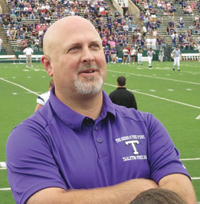 Gary Westbrook, Tarleton State University: Good bands are good bands. The venue just provides the lens through which I view the band. Some venues are more pressure packed or relaxed. In my experience, performers want to provide their best performance no matter the venue. Good preparation leads to good performance, even if they venue is the gym, and the audience is the physical education class on the other side of the curtain.
Gary Westbrook, Tarleton State University: Good bands are good bands. The venue just provides the lens through which I view the band. Some venues are more pressure packed or relaxed. In my experience, performers want to provide their best performance no matter the venue. Good preparation leads to good performance, even if they venue is the gym, and the audience is the physical education class on the other side of the curtain.
Tracz: There is more of a relaxed atmosphere in the festival format that brings out the best in students. The competition has the ever-present cloud of failure hanging over their heads.
Directors often tell their students that they are being judged from the moment they arrive at the performance location to the time they leave. Do you agree?
Lawrence Stoffel, California State University, Northridge: The learning objectives in an ensemble class extend beyond just musical outcomes. In addition to the primary musical objectives, students learn and develop many non-musical skills, including a work ethic, managerial skills, and professional behavior. So the students’ conduct and demeanor at a festival site will reflect some of these non-musical learning objectives that we have for our students.
Rand: I often told my students the same thing when I taught high school. I believe in focusing the students’ attention towards their performance and creating a climate within the program that was positive and respectful no matter where they were. As a judge, when you have a break in between ensembles you often see students at the concession stand and in the hallways. It is important that those students represent the school in the best light possible, but student behavior does not play a role in judging.
Joseph Hebert, Loyola University: I completely agree. Attitude and respect for the music and the event is evident from the moment they enter the stage.
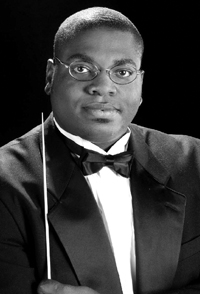 McCloud: We are all human, and it is difficult to separate orderliness, uniformity, and appearance before and after the performance from the overall perception of quality. An assumption can be made that if a director takes the time to specify non-musical details, then he has already addressed style, pitch, and articulation. That assumption is usually correct.
McCloud: We are all human, and it is difficult to separate orderliness, uniformity, and appearance before and after the performance from the overall perception of quality. An assumption can be made that if a director takes the time to specify non-musical details, then he has already addressed style, pitch, and articulation. That assumption is usually correct.
Tracz: I look for the discipline, esprit de corps, and confidence as they enter the stage area. The way the students are organized, their demeanor, and their professionalism typically gives me a direct line in to their musical souls. I can usually predict what quality I will hear from their entrance presentation.
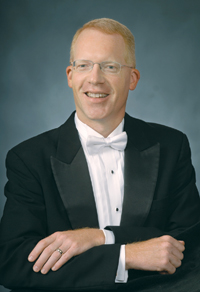 Zembower: I do observe how the student performers carry themselves when they begin to be seated and get adjusted. Is their demeanor respectful, serious, and mature? Can you tell if they are already concentrating on the upcoming performance and music to be played? Directors need to instruct their students about this area. I can easily identify the ensembles whose teacher has instructed them about this area with the judges, because they come in quietly, respectfully, and professionally.
Zembower: I do observe how the student performers carry themselves when they begin to be seated and get adjusted. Is their demeanor respectful, serious, and mature? Can you tell if they are already concentrating on the upcoming performance and music to be played? Directors need to instruct their students about this area. I can easily identify the ensembles whose teacher has instructed them about this area with the judges, because they come in quietly, respectfully, and professionally.
Blocher: While I have never consciously allowed non-performance student behavior to influence my formal evaluation of student performance, I do think all of us are judged from start to finish. That may be a life lesson.
Should directors allow students to listen to recording made by judges?
Tracz: I do feel strongly that the students should listen to the recordings in class with their music out and mark things in their parts. It is a wonderful learning tool.
Malambri: I encourage directors to play recordings for students and be prepared to stop and explain the comments as they are heard. Students should be viewing their music as they listen to the comments. My commentary typically employs musical terminology that may need some explanation by the director, but is done so with the intent to enhance succinctness and emphasize the necessity to learn and use musical vocabulary.
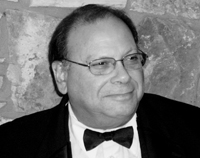 Grechesky: I usually try to make comments that would be helpful not only to the conductor, but also to the group. If I need to address a specific concern for the conductor only, I would probably write a private note.
Grechesky: I usually try to make comments that would be helpful not only to the conductor, but also to the group. If I need to address a specific concern for the conductor only, I would probably write a private note.
Rand: There are benefits to allowing students to listen directly to the recordings from the judges. Most often the students have heard the same comments from their director as those on the judges tape, but hearing it from someone else can make a difference. Sometimes the recorded comments are beneficial to both students and directors, by giving suggestions on how to solve musical problems that the ensemble is having or giving comments that can help develop a more musical performance.
What is the one comment you find yourself making almost every time you adjudicate a concert ensemble or a jazz ensemble?
Tracz: Students should put more air through their instruments.
Malambri: Balance. Without proper balance, the potential for myriad negative conditions exist. Good pitch relationships cannot be achieved if the players can’t hear how their part fits with the others. Use the B section of an ABA work as a portion of your warmup procedures and insist on proper balance and blend at the beginning of each rehearsal.
Grechesky: Articulations are not matched between sections. I frequently comment on horn right hand placement as well.
Zembower: There are two comments I find I make at every festival or competition: Every musician and ensemble should produce a dark, warm, round sound. Students should shape the musical phrase and show musical direction in the melodic line.
Westbrook: With concert ensembles I comment about releases. Most directors are extremely diligent about correcting attacks but less precise with note endings. The shaping of note endings should set up the next attack. For jazz ensembles, the most frequent comment is on style. So many groups do not seem to understand the style of the piece they are performing.
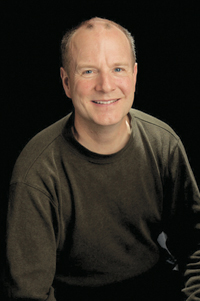 Stoffel: I hope that the comments that I have shared are useful not only to improving the performance level of the compositions that you have performed today, but the concepts and ideas that I have shared with you are also useful with other music that you will perform throughout the entire school year and in all of your musical endeavors – in concert band, orchestra, choir, chamber music, solos, etc. Try to find ways to apply these ideas and concepts in all of your music-making.
Stoffel: I hope that the comments that I have shared are useful not only to improving the performance level of the compositions that you have performed today, but the concepts and ideas that I have shared with you are also useful with other music that you will perform throughout the entire school year and in all of your musical endeavors – in concert band, orchestra, choir, chamber music, solos, etc. Try to find ways to apply these ideas and concepts in all of your music-making.
McCloud: Ensembles need more dynamic contrast.
Blocher: Jazz ensembles, like all ensembles, must work to sound good, play in tune, play together, play right notes, and play musically. Additionally, jazz ensembles must focus on style, the rhythm section, and improvisation. Students may not have much experience in these three areas. I encourage students to listen to professional recordings to get the appropriate jazz sounds in their heads. I remind them that guided listening is important in jazz. The judge’s comments can help the ensemble and individual students go beyond the notes written on the page. Directors should take the time to listen to each judge’s audio comments and decide if it would be appropriate for the ensemble to listen, too, or if they would need to summarize a few of the recorded comments.
Stoffel: The comments are for the students to hear. When giving audio comments I speak directly to the students. A significant benefit from participating in an adjudicated event is forfeited if the students do not listen to the comments. That being said, the director still has the obligation to listen to the audio comments before playing the recordings for students.
We have all judged groups where some instrumentation has been altered. How does this change your adjudication?
Rand: Instrumentation does not normally weigh in on the adjudication processes. Many ensembles may lack sufficient oboes, horns, or bassoons. However, when there are students within a particular section and a solo written for that instrument is given to a different instrument, it becomes questionable. There is a difference in playing a piece with full instrumentation and choosing to rewrite parts compared to those ensembles that do not have the necessary instruments. Directors of ensembles that do not have correct instrumentation need to be careful in choosing appropriate repertoire for their ensembles.
Grechesky: It doesn’t bother me much. I would rather have a part covered by another instrument than not have the part at all.
 Hebert: I congratulate the director who gives students a chance to perform the literature regardless of the less than ideal instrumentation. Music should be first, not the idea of perfect instrumentation. Substitute instruments so that the selection can be played, and include a note to the judges.
Hebert: I congratulate the director who gives students a chance to perform the literature regardless of the less than ideal instrumentation. Music should be first, not the idea of perfect instrumentation. Substitute instruments so that the selection can be played, and include a note to the judges.
Zembower: If a director’s ensemble doesn’t have the exact instrumentation of a piece they are performing at the festival, it doesn’t bother me. I judged an event several years ago where a band did not have an instrument that had a solo, and no other instrument played that solo. Unless this student was unexpectedly sick that day, and the director didn’t have time before the performance to transcribe the solo for another instrument, there is no excuse for this. On the other hand, I heard a band perform Daugherty’s Alligator Alley several years ago, and, because the band lacked a bassoon to play a solo part, it was rewritten for bass clarinet It worked, and they played it well. In this instance, I weighed my rating a little higher because of the director’s decision to choose and teach a certain piece to have their students be able to perform it.
Stoffel: This is a minor issue and one that ought to be negligible at most festival events. Our focus should be on the quality and the expressiveness of the performance.
Blocher: I do not have a problem with a director rewriting parts or even a section to make it fit a particular ensemble as long as the performance is not compromised. For example, intentionally choosing to program a musical selection with an extended oboe solo without having an oboe in the ensemble would be inappropriate. Music selection matters. The good news is that while directors are building up a more balanced instrumentation, there is lots of great music that may be more appropriate for now.
What advice do you give directors to prepare their groups for the sightreading part of a competition or festival?
Hebert: Sightread often. An ensemble that sightreads well can prepare a concert faster. The three biggest pitfalls are road maps, (including knowing where the repeats are, D.S. and D.C. with Coda), difficult rhythms, and looking ahead of the note being played.
Malambri: I recommend establishing a hierarchical order of sightreading procedures and rehearsing the protocols on a regular basis. The use of musical terms is an easy way to expedite rehearsals. Mentioning the term ostinato should resonate in a music class as clearly and concisely as the use of alliteration in a language class. Employment of musical terms allows clear, concise instructions to any ensemble without fear of misinterpretation, and should be planned for inclusion in each and every rehearsal commentary.
Westbrook: The number one rule of the sightreading room is to use all the time you are provided. If the piece is new, you can always find something to emphasize to improve the performance. More often than not, inexperienced directors jump right into the performance with time left on the clock.
Second, have a method. No matter what it is, those who succeed at sightreading have a method they practice every time they read a new piece of music.
Hush and allow the band to experience the piece prior to the performance. Allow them time to finger through a practice performance. Some places allow them to sizzle or sing, and others do not. Either way, provide time for the students to practice performing the piece.
Establish visual cues between you and your band. For example, at rehearsal markings (letter A, or box 49) I will give a downbeat with both hands to make sure we are there together. Many events will not allow the director to speak during the performance, but this allows the director and band to have checkpoints throughout the piece.
Finally, teach music from the sightreading level on. In most places the sightreading selection is a lower grade than your prepared selections. Teach your band to play in the style of the work at sight and to use correct phrasing, shaping of notes, balance, and blend. One of the common pitfalls is to see easy music and play it as students did when they performed on that level instead of at their current higher level.
Blocher: The best sightreading experiences are with directors who were organized, prepared, and professional. Their students were attentive and knew what to do and when to do it. The director read through the score with a plan in mind, and then the director and students worked together systematically as though they had practiced and prepared for the sightreading experience.
Closing Thoughts
Malambri: Construct a blueprint for each work to be rehearsed. This outline should be based upon areas needing work that were identified in the previous rehearsal of any given composition. The blueprint should be written (don’t trust your memory), address specific concerns, and show the approximate amount of time to be allocated to each specified area. Again, be succinct in your rehearsal commentary and have several different remedies prepared that address the problems.
Hebert: In a performance we can always find fault. However, good comments to correct faults can help an ensemble and can encourage music education. Students do not respond to constant negative comments.
Zembower: Bruno Walter once said, “Bad conductors will accept the sound the ensemble gives them, but great conductors will give their sound to the ensemble.” I strongly agree with this statement because in my experience from hearing bands in rehearsals and adjudicating bands in festivals, an ensemble is a direct musical reflection of its conductor.
Blocher: Good music adjudicators are not out to flex chops or punish students or directors. Good music adjudicators do not have the answer. Good music adjudicators offer honest, constructive comments with specific suggestions for improvement based upon what they hear and see during that performance. Good music adjudication – like good music teaching – is really hard work.
